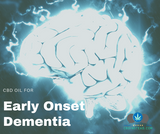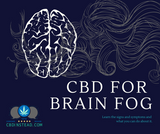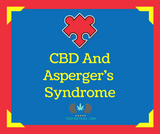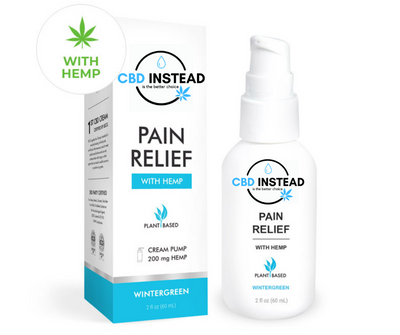When it comes to pain syndromes like CRPS, often the medications prescribed can be addictive or harmful to the body if used for a prolonged period. This is why so many people are looking to CBD hemp oil for their chronic pain. CBD oil is non-addictive, you don’t grow a tolerance, and there are no over-dose risks when taking hemp oil. Is CBD what you need for your CRPS?
What Is CRPS?

Complex regional pain syndrome (CRPS) is a chronic pain condition that most often affects one limb. Pain is considered chronic if it lasts for longer than six months and the limbs CRPS most often effects are the arms, legs, hands, and feet.
CRPS is most common in women, but it can happen to anyone at any age but the risk peaks at the age of 40. CRPS isn’t found often in the elderly, and very few children are affected by CRPS.
How Do You Get CRPS?
CRPS is most common in women, but it can happen to anyone at any age. The risk peaks at the age of 40, but it is uncommon to develop this syndrome in your senior years. This pain syndrome usually develops after surgery or an injury, which may be why it is also so uncommon for children to develop CRPS.
It is believed that CRPS is caused by damage to or malfunction of the peripheral and central nervous system. The central nervous system is made of your brain and spinal cord while the peripheral nervous system involves nerve signaling from the spinal cord and brain to the rest of the body. Only 90% of cases of CRPS are linked to previous trauma, and researchers aren’t sure what the difference is between the two different types of patients.
Common Triggers for CRPS
- Fractures
- Sprains
- Strains
- Soft tissue injury
- Limb immobilization
- Surgery
- Minor medical procedures
Symptoms of CRPS
Symptoms of CRPS can vary in duration and severity. Some cases can be mild and eventually go away while others can be debilitating and last for months. There are several different symptoms, and you don’t have to experience all of them to be considered for CRPS diagnosis.
- Prolonged severe pain described as burning, pins, and needles, or someone squeezing the area
- Spreading pain from injured area to connected limb
- Increased sensitivity in the affected area known as allodynia
- Changes in skin temperature
- Changes in skin color
- Swelling in the affected limb
- Changes in skin texture
- Abnormal sweating
- Changes in nails and hair growth
- Stiffness in joints
- Decreased mobility
- Tremors, jerking, or other abnormal movements in the affected limb
How Is CRPS Diagnosed?
If you are in a bunch of pain all of the time, you still need to go to a doctor to find out what is causing the pain and don’t just write it off because you check off a few symptoms. A professional needs to check off those boxes, too.
If you go to the doctor expecting a blood test to tell you what all of your problems are, you’ll be disappointed. There isn’t a sure and specific test for CRPS. What doctors do is rule out other causes of your pain and sometimes need to watch over you to see how your symptoms change over time. They will also most likely give you different types of scans like with an X-ray or MRI to get more hints from your body.
How Is CRPS Treated?
After a doctor has ruled out any other causes, several different treatment methods will be advised to you.
Rehabilitation Therapy
Rehabilitation therapy for CRPS is an exercise program to help keep your limbs moving and improve blood flow. Increasing your blood flow can help lessen the circulatory symptoms you’re experiencing. These exercises can also help improve the flexibility, strength, and function of your limbs.
Rehabilitation therapy for your limbs can also help prevent or reverse secondary brain changes that can be caused by chronic pain. By working with your therapist, you can also find new ways to perform daily tasks without causing too much pain.
Psychotherapy
Pain has a way of making your brain feel funky. It doesn’t just affect the person in pain, it can affect the entire family’s mental health. People with CRPS can develop:
- Depression
- Anxiety
- PTSD
These mental health symptoms can make the pain even more unbearable and make rehabilitation difficult. By treating these secondary conditions with a mental health specialist, you can make recovery and coping easier.
Medications
There are different types of medications that you can take that can all be successful depending on how early on you are in the course of the disease. But no drug has been approved by the FDA specifically for CRPS, and no drug combination is guaranteed to work for every person.
Common medications Used For CRPS
Bisphosphonates – i.e., alendronate or intravenous pamidronate
Non-steroidal anti-inflammatory drugs (NSAIDs) – i.e., aspirin, ibuprofen, and naproxen
Corticosteroids – i.e., prednisolone and methylprednisolone
Seizure or depression medication – i.e., gabapentin, pregabalin, amitriptyline, nortriptyline, and duloxetine
Opioids – i.e., oxycodone, morphine, hydrocodone, and fentanyl
N-methyl-D-aspartate (NMDA) – i.e., dextromethorphan, ketamine, and lidocaine
One of the biggest problems when it comes to some of these medications I how they affect the body and the mind. Some pain medications can be very addictive, and patients taking them need to be under strict supervision.
Considering that CRPS can cause pain for long periods, certain pain medication shouldn’t be taken for the entire duration because of the effects on the body. People in pain are starting to see that using medical cannabis can have the same therapeutic effects without the risks associated with pharmaceuticals.

CBD For CRPS
Medical cannabis is becoming a popular option for people who are suffering from pain. Unfortunately, not everyone has access to the full plant. To go around this and to still get the benefits of medical cannabis without breaking the law, many are turning to CBD hemp oil to help relieve their symptoms.
What Is CBD?
Cannabidiol (CBD) is a chemical that comes from the cannabis plant much like the popular chemical THC. The main difference between these two chemicals is that CBD doesn’t directly interact with your endocannabinoid system, preventing it from causing you to feel intoxicated or “high.”
The Endocannabinoid System
CBD works by indirectly interacting with the endocannabinoid system. This system is what is in charge of your entire body and makes sure that you stay regulated through a process called homeostasis. The way the endocannabinoid helps to control your body’s functions is through cannabinoid receptors and endocannabinoids.
Cannabinoid Receptors and Endocannabinoids
One way that CBD indirectly interacts with the endocannabinoid system is by elevating endocannabinoids which are chemicals that our brain produces to bind to cannabinoid receptors. The two main endocannabinoids are anandamide and 2-AG, and they bind with the CB1 and CB2 cannabinoid receptors.
The CB1 cannabinoid receptor helps to mediate the neurological functions of the body, mainly binding with the endocannabinoid anandamide. These neurological functions include your appetite, sleep cycle, mood, and sensitivity to pain. The CB2 cannabinoid receptor helps to mediate your immune functions and mainly binds to the 2-AG endocannabinoid.
CBD For Pain Relief

CB2 Receptors And CRPS
There are a couple of different ways that CBD oil may be able to help with CRPS. The first is by elevating an agonist to the CB2 receptor. An agonist is a chemical that binds to the receptor and stimulating to cause a response.
Studies have shown that by interacting with the CB2 receptor, you may be able to reduce the feelings of pain and symptoms of inflammation. However, these models are still in the rodent stages and need human studies to be sure.
Anandamide And Pain
One of the endocannabinoids that we know that CBD oil elevates in the body is called anandamide. This chemical is released when you work out, eat chocolate, and also helps you calm down when you are angry.
The way anandamide works is through a process called retrograde signaling. While most neurotransmitters travel from the sending cell through the synapse to the receiving cell, endocannabinoids travel in the opposite way.
Anandamide travels backward to bind to the CB1 receptor, and it transmits a message to stop sending out so many pain signals through the body. Many people compare the feeling of anandamide being elevated to a runner’s high. You feel an uplifted mood, and the pain is less severe just like after a good jog.
CBD For Inflammation
High levels of cytokines, which cause inflammation, have been found in the cells of people with CRPS. This leads scientists to believe inflammation could play a role in this pain syndrome. If that is the case, CBD oil has just another way to help.
By elevating the 2-AG endocannabinoid, CBD oil helps with inflammation with the same process it uses to help with pain, retrograde signaling. The 2-AG endocannabinoid tells the CB2 receptor to stop sending out so many attack cells without compromising the strength of your immunity.
Talk To Your Doctor
If you want to start taking CBD oil for your CRPS, talk to your doctor first. CBD oil can reduce the efficiency of other medications, and you need to make sure that you aren’t mixing medications that don’t go together. They can also help monitor your symptoms and help you look out for any adverse reactions you may experience. Once you get the go-ahead from your doctor, be sure to stop by our shop to get some creams or tinctures that may be able to help you finally get relief from CRPS.
Have you used CBD hemp oil for CRPS? We would love to hear your story in the comment section below!















